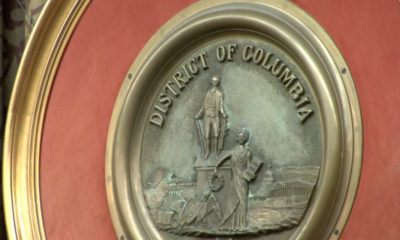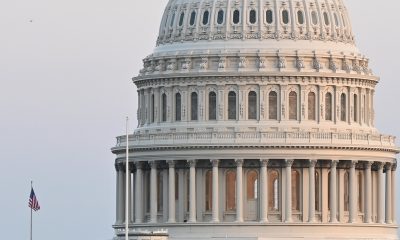Opinions
Media portrayal of Trayon White does him no justice
Washington Post’s unfair coverage ignores record of good deeds
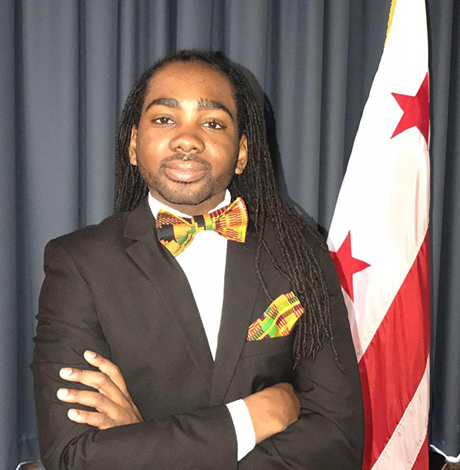
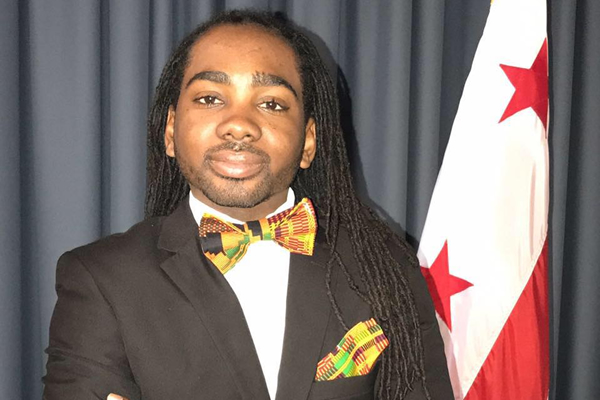
D.C. Council member Trayon White (D-Ward 8) (Photo via Facebook)
Over the past few weeks, there has been immense focus on Ward 8 Council member Trayon White’s comments in a Facebook video that the Rothschilds are manipulating the weather. Once The Washington Post discovered the video, it began running articles with headlines that White said “Jews control the weather,” which he never said. The distinction between saying “Rothschilds” versus saying “Jews” is important because The Post went from merely reporting facts to ascribing intent to White’s statements.
Media outlets worldwide then picked up the story. White did not know that his statement about the Rothschilds could be construed as targeting Jews as a group. To reach that conclusion, he would have needed to know that conspiracies about the Rothschilds are long-running anti-Semitic themes, which he and numerous others, including local Jewish leaders, acknowledge that he did not know.
Upon hearing of the history of Rothschilds conspiracy theories and the impact that they have on the Jewish community, White sincerely apologized, and met with his Jewish Council colleagues and Jewish community leaders, including Rabbi Batya Glazer. The Jewish leaders he met with believed his apology was sincere and expressed a willingness to work with him. White then attended Passover Seder with his Council colleague Elissa Silverman, who is Jewish, and D.C. Attorney General Karl Racine. After that, he attended a guided tour of the Holocaust Museum, set up by the Jewish Community Relations Council.
In response to criticism about White’s tour of the Holocaust Museum, after another Washington Post article, Jews United for Justice, a D.C.-based progressive organization, noted in a statement that, “We have spoken with several people who were present for the museum visit, including a Jewish leader, who say the Post article isn’t an accurate picture. They describe Trayon as sincere in his desire to learn, and that the vast gaps in knowledge and understanding between Black and Jewish communities became evident again and again during the tour.”
These are not the actions of someone who is anti-Semitic and not interested in learning more about Jewish history. White admits in a Facebook Live video that he was “ignorant” about Jewish history and never learned about the Holocaust in school, so disparaging him for asking sincere questions is counter-productive and serves no one. It’s also insensitive and elitist, as many people learn best by asking questions and engaging in dialogue. White should not have been derided by a Washington Post reporter for asking questions in a sincere attempt to learn about a topic that is new to him.
Jews United for Justice’s statement further said that, “Councilmember White closed his Council office to ensure that the entire staff would be present for the museum visit. This in itself shows the depth of his seriousness.” Nonetheless, he was criticized for “leaving early” when he walked away from the group to explore the museum on his own, which he said he did to avoid the uninvited reporter who was following him.
Last week, The Washington Post wrote an article about a $500 donation that White made to the Nation of Islam back in January because local members, who provide much-needed community support in Ward 8, asked him. The donation was made before Louis Farrakhan made anti-Semitic and homophobic comments at a February event that has garnered recent attention. The donation was also made months before the Rothschilds comment was made, so it has no bearing on the sincerity of White’s outreach efforts with the Jewish community. However, the media just became aware of the donation when White filed his April campaign finance report, so a donation that was made months prior to his attempts to make amends with the Jewish community is being used to assert that his efforts are not heartfelt.
Trayon White was born and raised in Ward 8, the District’s poorest ward. Markita Bryant, 31, a youth activist and paralegal, grew up with Trayon in Southeast and went to college with him. The media coverage of White particularly bothers her because “that’s not who Trayon is. If he feels that he hurt or offended someone, he internalizes it, acknowledges it and works on it. He takes in criticism and he will improve himself.”
“He sacrifices a lot to serve the community, including food and sleep,” she said. “He has literally given a neighborhood child the shoes off his feet at a community event when the child’s shoes were stolen.” Bryant further noted, “Trayon’s brilliant because he takes the time to sit there and understand the information in front of them. If he’s not learning, he’s helping others. That’s why he graduated with a 3.7 from the University of Maryland Eastern Shore. He’s the biggest listener and he’s so patient. He works his butt off for the people.”
Star Bennett, 28, is a transgender woman and one of the founders of Check It, a former LGBT gang turned entrepreneurs. When discussing White’s openness to all people, Bennett said, “Trayon was always cool and very respectful. He never had a problem with me being transgender. He’s always smiling every time he sees me.” Bennett mentioned that White was at the grand opening for the Check It Enterprises store in Ward 8. “He always comes and supports us.”
Wendy Glenn, 50, a community engagement specialist and longtime ward 8 resident, said, “Councilmember White has gone out and galvanized a group of marginalized folks. He’s given the youth something to aspire to. They know that he came from meager beginnings and now represents everyone. He is a young man that has grown up in the same way as they have, and he hasn’t let that stop him.”
Glenn, who has known White since he was a teenager, was “impressed with him as a teen and more impressed with him on the Council. I saw his growth,” she said. “I had a group of LGBTQ youth that did modeling at Barry Farm Rec Center and he was very supportive of them.”
Glenn described the recent media coverage of White as a “false depiction. It’s sensational journalism. To know Trayon is to know him in love. He’s a church boy. He has shown no level of hate. He hates injustice in any form.”
(Editor’s note: The author and Trayon White were previously colleagues at the D.C. Office of the Attorney General, Community Outreach.)
Lateefah Williams is an attorney and a former president of the Gertrude Stein Democratic Club, the District’s largest LGBT political organization.
Opinions
Support the Blade as mainstream media bend the knee for Trump
From CBS to Washington Post, MAGA taking over messaging
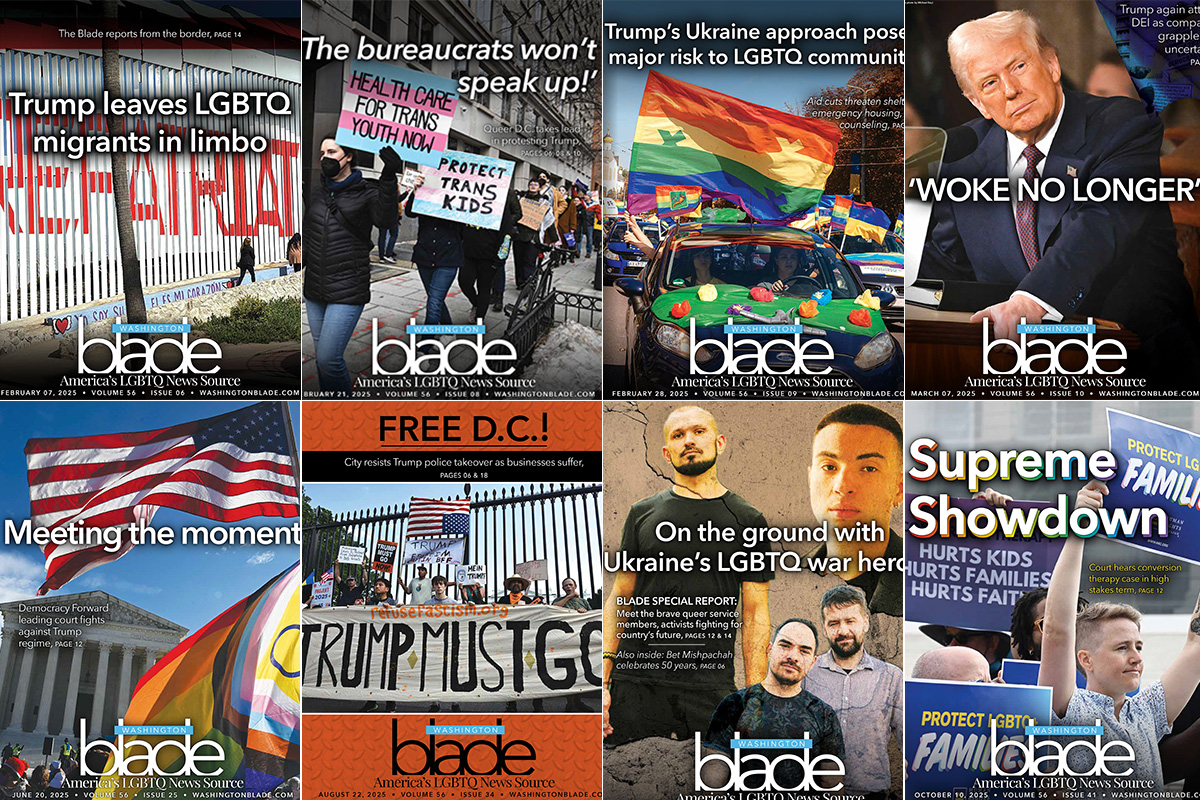
We knew it would be bad. I’m referring, of course, to 2025 and the unthinkable return of Donald Trump to the White House.
We just didn’t know how bad. The takeover of D.C. police. ICE raids and agents shooting defenseless citizens in the face. The cruel attacks on trans Americans. A compliant and complicit right-wing Supreme Court and GOP rubberstamping all the criminality and madness.
Much of that was outlined in Project 2025 and was predictable. But what has proven surprising is the speed with which major companies, powerful billionaires, and media conglomerates have hopped on board the authoritarian train and kissed Trump’s ring. Tech giants like Apple and Meta and media companies like CBS and the Washington Post have folded like cheap tents, caving to MAGA pressure and enabling Trump’s evil agenda.
The guardrails collapsed in 2025. Congress has ceded its role as a formerly co-equal branch of government. Once trusted media outlets have betrayed their audiences’ trust and morphed into propaganda arms of the White House. As a lifelong journalist, this is perhaps the most shocking and disappointing development of the past year.
The Washington Post, which adopted the ominous tagline of “Democracy Dies in Darkness,” killed its endorsement of Kamala Harris in the final days of the 2024 campaign. Same thing at the Los Angeles Times. More recently, CBS’s vaunted “60 Minutes” spiked a story critical of Trump’s immigration policies under the direction of new editor-in-chief Bari Weiss, a Trump toady and the antithesis of a journalist.
Concurrently, media companies large and small are fighting to survive. Government grants have been rescinded and the Corporation for Public Broadcasting, responsible for funding NPR and PBS, announced plans to dissolve. The Pittsburgh Post-Gazette, a nearly century-old Pulitzer Prize-winning institution, announced this week it will close on May 3. The Washington Post has lost scores of talented journalists, including prominent LGBTQ voices like Jonathan Capehart. The Baltimore Sun was acquired by the same family that owns right-wing Sinclair Broadcasting, ending a nearly 190-year tradition of award-winning, independent journalism.
It is not a coincidence that Trump’s attacks on democracy, traditions, and norms are happening while the media industry collapses. News deserts are everywhere now. In 2024, 127 newspapers closed, leaving 55 million Americans with limited or no access to local news, according to a report by Medill.
There’s a reason the media are called the “Fourth Estate.” Journalism was considered so critical to the health of our democracy that the Founding Fathers spelled it out in the First Amendment. Democracy and our Constitution cannot survive without a free and robust press.
That’s why I felt compelled to write this appeal directly to our readers. For nearly 57 years, the Blade has told the stories of LGBTQ Washington, documenting all the triumphs and heartbreaks and writing the first draft of our own history. Today, we remain hard at work, including inside the White House. This week, we have a reporter on the ground in Colombia, covering the stories of queer Venezuelan migrants amid the crisis there; another reporter will be inside the Supreme Court for next week’s trans-related cases; on Sunday, we have a reporter on the red carpet at the Golden Globes ready to interview the stars of “Heated Rivalry.”
We do a lot with a little. As major companies pull back on their support of the LGBTQ community, including their advertising in the Blade, we turn to our readers. We have never charged a dime to read the Blade in print or online. Our work remains a free and trusted resource. As we navigate these challenges, we ask that you join us. If you have the resources, please consider making a donation or purchasing a membership. If not, please subscribe to our free email newsletter. To join, visit washingtonblade.com and click on “Fund LGBTQ Journalism” in the top right navigation.
Our community is known for its resilience. At the Blade, we’ve weathered the AIDS epidemic, financial crises, and a global pandemic. We are committed to our mission and will never bend to a wannabe dictator the way so many mainstream media outlets have done. The queer press is still here and with your help we will survive these unprecedented attacks on democracy and emerge stronger than before. Thank you for reading the Blade and for considering making a donation to support our work.
Kevin Naff is editor of the Washington Blade. Reach him at [email protected].
Opinions
Time has run out for the regime in Venezuela
American forces seized Nicolás Maduro, wife on Jan. 3

Time has run out for the regime in Venezuela.
I am fully aware that we are living through complex and critical days, not only for my country but also for the entire region. However, the capture of Nicolás Maduro has renewed hope and strengthened my conviction that we must remain firm in our cause, with the certainty that the valid reward will be to see Venezuela free from those who continue to cling illegitimately to power.
In light of this new reality, I adopt a clear, direct, and unequivocal position:
I demand the immediate release of all political prisoners.
I demand that all persons arbitrarily detained for political reasons be returned to their families immediately, without delay or conditions.
According to Foro Penal, as of Jan. 5, 2026, there are 806 political prisoners in Venezuela, including 105 women, 175 military personnel, and one adolescent, and a total of 18,623 arbitrary arrests documented since 2014. The same report documents 17 people who have died while in State custody and 875 civilians prosecuted before military courts, clearly evidencing the use of the judicial and security apparatus as instruments of political persecution. In parallel, the humanitarian system estimates that 7.9 million people in Venezuela require urgent assistance, further aggravating the impact of repression on daily life.
Behind these figures are shattered lives, separated families, and destroyed life projects. Students, activists, human rights defenders, political leaders, and members of the armed forces remain imprisoned without judicial guarantees, without due process, and without justice.
Since the capture of Nicolás Maduro, repression has not ceased. On the contrary, more than ten journalists have been arbitrarily detained, while others have been harassed, imprisoned, or mistreated for carrying out their duty to inform. Today, journalism in Venezuela has become a heroic and high-risk act.
This situation is further aggravated by a new attack on fundamental freedoms: an illegitimate decree of “external state of emergency”, whose purpose is to legalize state terrorism, expand the scope of repression, and deepen the criminalization of dissent and freedom of expression.
The destruction of freedoms cannot and must not be normalized, either by society or by the international community.
I do not forget the atrocities committed against people deprived of their liberty: systematic violations of due process, torture, cruel, inhuman, and degrading treatment, denial of medical care, and prolonged isolation.
These practices have been widely documented and denounced and are currently under investigation by international justice mechanisms.
In this regard, the United Nations Independent International Fact-Finding Mission on Venezuela has repeatedly expressed grave concern over the persistence of serious human rights violations, including the use of torture, enforced isolation, and the responsibility of State security forces in systematic abuses, as reflected in its statements and reports issued on Jan. 3, 2026, and throughout 2025.
From my unwavering commitment to human rights, I issue a firm and urgent call to Venezuelan citizens and to all people in the free and democratic world to stand together in defense of human dignity.
All political prisoners must be released now.
All torture and detention centers must be closed.
I am convinced that there can be no genuine democratic transition without the immediate release of political prisoners, the submission to justice of those responsible for arbitrary detentions, and the establishment of accountability mechanisms, guarantees of non-repetition, and full reparation for victims and their families. This is the only viable path toward a proper transition to democracy in Venezuela.
Today, more than ever, I stand in solidarity, inside and outside Venezuela, with the victims and their families.
This is a moment of definition, not of silence or hesitation.
I assume, together with millions of Venezuelans, that we are co-responsible for our collective reality and for the new Venezuela that we are called to rebuild.
Dignity, freedom, and justice cannot wait.
Freedom for Venezuela.
Juan Carlos Viloria Doria is president of the Global Alliance for Human Rights and vice president of Venezolanos en Barranquilla, an NGO based in Barranquilla, Colombia.
Opinions
Just say no to the felon in the White House
Democrats, media must do more to oppose Trump’s agenda

We have a clearly deranged, sick, felon as president, who can’t even remember if he had an MRI, or a CT. He says he takes enough aspirin to keep his blood running thin in his veins. He fakes health reports, and lies every time he opens his mouth. His brain appears foggier than Joe Biden’s ever was.
The felon arranged to get a fake Peace Prize from the soccer federation, while taking military actions around the world. He sanctioned American attacks on Nigeria, Iran, Syria, and now on the government, and people, of Venezuela. He has our military attacking boats, claiming they are carrying drugs, with no proof. He interferes in foreign elections, making the United States less safe. He obviously supports Putin in his war against Ukraine, and supports Netanyahu’s destruction of Gaza, and his starvation of the Palestinian people there. Because of all this it’s understandable why he calls his Secretary of Defense, his Secretary of War. That individual being unqualified with no competence, or decency — the perfect toady for the fascists surrounding Trump. He has a Secretary of State in Marco Rubio who clearly has no principles at all. Rubio previously said, “Donald Trump – a con artist – will never get control of this party…We cannot allow a con artist to get access to the nuclear codes of the United States of America.” He compared Trump to a “third-world strong man.” Now as Secretary of State he justifies all the illegal actions the felon takes.
I, and many others, question “Where is Congress in all this?” Do no Republicans in Congress have any cojones? Two Republican woman have criticized Trump — Marjorie Taylor Greene (R-Ga.) and Nancy Mace (R-S.C.). Both on the Epstein files, one on screwing the American people with regard to their health insurance. Both are now out of Congress, still MAGA, but found if you disagree with the felon, he sics his cult on you.
My other question is: When will any in the media really stand up to him? When do mainstream media call out every one of his lies, as he makes them? When do they show any guts, and repeat each day he is deranged? When do they have daily headlines, calling him out on things from his health reports, to lies about the economy? Where are the daily headlines calling out the Republican Congress for its lack of action? Why is there no representative clock on every TV network, ticking off the time Congress doesn’t take back their rightful place as an equal branch of government? When will they call out the Supreme Court, reminding people what Trump’s picks said during their confirmations, versus what they are doing now? When will they actually reclaim ‘The freedom of the press?’
Democrats must continue to speak out. I am aware they have little power in this Congress, but they must not remain silent. We have seen, when they do speak up, we win elections. They help the people to wake up, as they did in recent elections in New Jersey and Virginia. In races as distinct as the mayoralty of Miami, where a Democrat won for the first time in 30 years, and did so in a landslide; and Democrats won two special elections for State Senate in Mississippi. In Georgia, Democrats won two seats on the Georgia Public Service Commission, the first time in 20 years they won a statewide seat. And they won a State Senate seat in Iowa, and the redistricting vote in California.
To continue winning Democrats must remind people every day what the felon, and his fascist cohorts, are doing to destroy their lives. Latinos and Hispanics need a daily reminder, it is the felon who once said he supports them, whose government is now deporting them. Young people must be reminded every day, the felon is destroying the country they will inherit, their future, by denying climate change. Everyone needs daily reminders how he is destroying the health of the country. Ending research grants looking for cures for cancer, Alzheimer’s, Parkinson’s, and HIV/AIDS. Ending research grants into curing childhood diseases, development of mRNA vaccines, and other potential progress to protect Americans, and the world, when the next pandemic occurs, and it will. He is literally killing children by having his government speak out against vaccinations for illnesses like measles, considered eradicated before he came into office.
All of this needs to be headlined each day in our newspapers, and on TV, by the people who still can, and are willing, to do it. Those not bought off by, or afraid of, the felon, and his fascist cohorts. Those who don’t sit with him at Mar-a-Lago, and have become his enablers. We the people need to take to the streets and every time there is an election, use our vote to say to the sick, deranged, felon, and his fascist cohorts, ‘NO MORE’.
Peter Rosenstein is a longtime LGBTQ rights and Democratic Party activist.
-

 National5 days ago
National5 days agoWhat to watch for in 2026: midterms, Supreme Court, and more
-

 Opinions5 days ago
Opinions5 days agoA reminder that Jan. 6 was ‘textbook terrorism’
-

 Colombia5 days ago
Colombia5 days agoClaudia López criticizes Trump over threats against Colombian president
-

 District of Columbia4 days ago
District of Columbia4 days agoImperial Court of Washington drag group has ‘dissolved’



